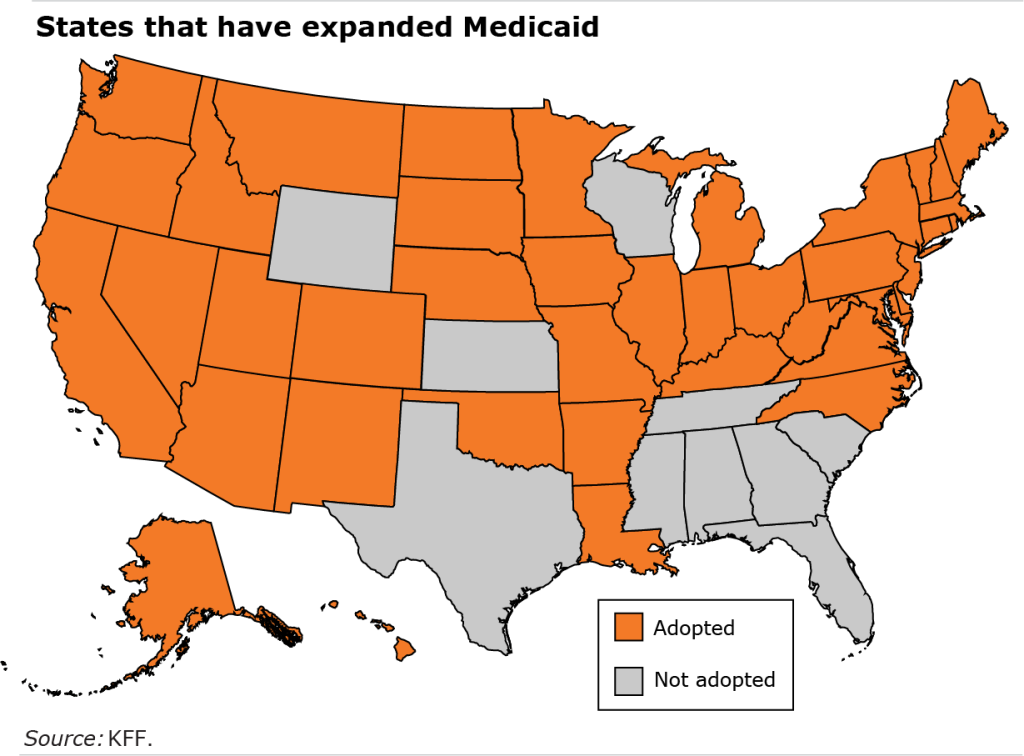
Medicaid Expansion: a New Option for Disabled Workers
Picture an older warehouse worker whose back pain might qualify him for a federal cash benefit for his disability. If he’s right and his application is approved, he would get the Medicare health insurance he needs to manage his condition.
But there’s a problem. Applicants often quit their jobs to strengthen the case for disability. But quitting would mean giving up his employer’s health insurance and going without coverage during the two-year waiting period for the Medicare that follows approval for disability benefits.
Economists have a name for this predicament: job lock. A new study finds that the expansion of the Medicaid health insurance program, which has now spread to 40 states, opens up a new path for disabled workers.

While they wait for Social Security to decide on the application for disability benefits, they can safely quit their jobs, give up their employer’s insurance, and go on the public Medicaid rolls if their assets and income are low enough to meet the requirements.
The researchers found that enrollment in the federal disability program by people with disabilities, including longstanding disabilities, increased by 18 percent above average enrollment levels in 24 states that were the first to extend Medicaid to more of their residents.
The largest impact was on people between ages 50 and 64 who have physical disabilities or struggle to take care of themselves or live independently – exactly the populations who would be most affected by job lock.
Medicaid “permits persons who had remained in the labor force primarily to retain access to [employer health insurance] to take early retirement” and apply for disability, the researchers concluded.
This study casts a wider net than prior studies on this issue because the researchers identified a large, diverse population of disabled people by making use of a U.S. Census survey asking individuals about their disability status twice, a year apart, enabling them to split the population into persons with new and ongoing disabilities. To identify them, the survey asks a sequence of six questions – from whether someone is deaf to whether he can live independently.
The researchers noted that the enrollment increase spurred by the Medicaid expansion goes against the general tide “of a nationwide decline in [disability] enrollment” in recent years.
To read this study by Ari Ne’eman and Nicole Maestas, see “How Does Medicaid Expansion Impact Income Support Program Participation and Employment for Different Types of People?”
The research reported herein was derived in whole or in part from research activities performed pursuant to a grant from the U.S. Social Security Administration (SSA) funded as part of the Retirement and Disability Research Consortium. The opinions and conclusions expressed are solely those of the authors and do not represent the opinions or policy of SSA, any agency of the federal government, or Boston College. Neither the United States Government nor any agency thereof, nor any of their employees, make any warranty, express or implied, or assumes any legal liability or responsibility for the accuracy, completeness, or usefulness of the contents of this report. Reference herein to any specific commercial product, process or service by trade name, trademark, manufacturer, or otherwise does not necessarily constitute or imply endorsement, recommendation or favoring by the United States Government or any agency thereof.






